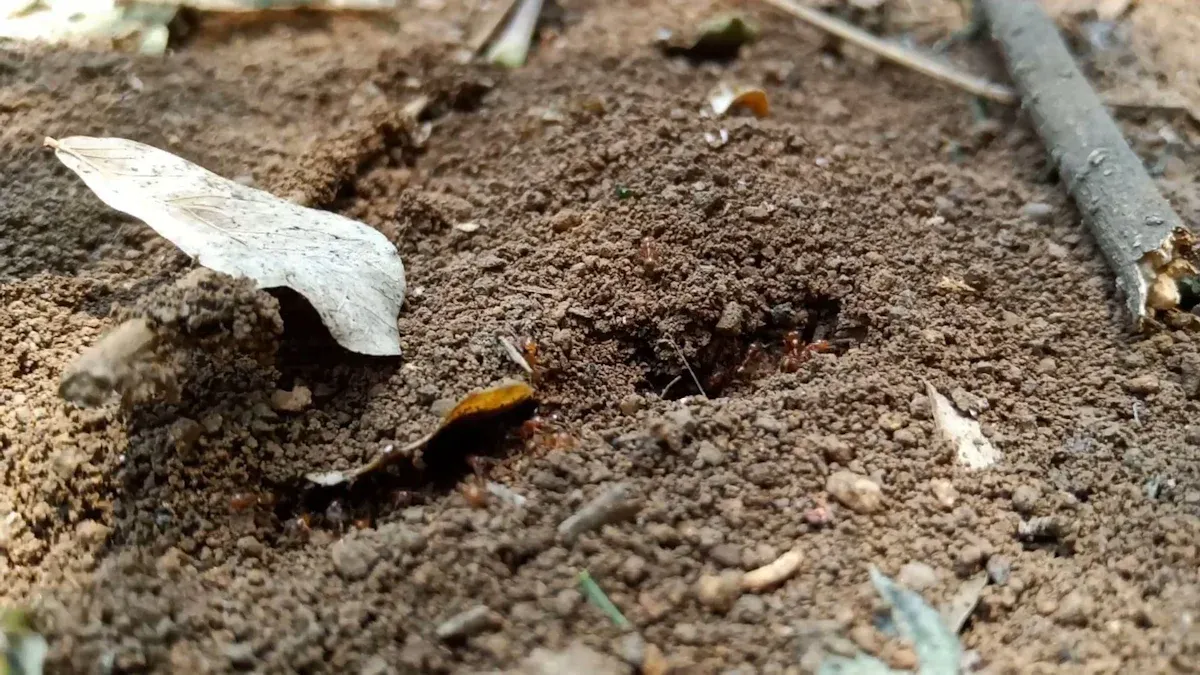- This topic is empty.
-
AuthorPosts
-
Chemical injection for foundation strengthening helps make soil more durable for building support. This advanced chemical injection method hardens the soil and reduces the risk of damage, while also saving time and money. Recent studies reveal that innovative chemical injection for foundation applications alters soil particle behavior, effectively preventing ground sinking or shifting. Compared to traditional techniques, chemical injection for foundation causes less disruption and is more environmentally friendly. Hengxiang Hongye specializes in soil stabilization using their Non-destructive Controllable Soil Stabilization technology, delivering reliable and long-lasting solutions for various soil and foundation challenges.
Key Takeaways
-
Chemical injection makes soil strong fast and safe. It helps make a solid base for buildings and roads. This method lowers the chance of ground sinking. It also stops damage to buildings by filling spaces and holding soil together. It saves time and money because it uses less material. It also needs smaller machines and does not disturb daily life much. Chemical injection is good for the environment. It uses green materials and makes less pollution than old ways. Hengxiang Hongye’s new technology gives exact and gentle soil stabilization. The results last a long time.
Chemical Injection for Foundation

Process Overview
Chemical injection for foundation helps make soil stronger. This method uses special soil injection steps to help support buildings. The process has several clear steps:
1. Site evaluation and assessment: Engineers look at the foundation and check the soil. They search for cracks or places where the ground has settled. 2. Drilling injection points: Workers drill small holes in the ground or concrete. These holes get the soil ready for the injection. 3. Injection of stabilizing materials: Special machines push chemical solutions into the soil. These can be things like expanding polyurethane foam or cement grouts. The chemicals fill empty spaces, pack the soil tighter, and help it hold more weight. 4. Monitoring the injection process: Experts watch the pressure and amount of chemicals used. They make sure the chemicals spread out evenly and do not lift the ground too much. 5. Finishing and clean-up: Workers close up the holes and fix any damage on the surface.
Hengxiang Hongye’s Non-destructive Controllable Soil Stabilization is different from other methods. It does not need big digging jobs. It uses real-time checks to be very exact. The process uses safe, non-polluting materials. This helps protect the environment and lowers carbon emissions. Most jobs finish in 10 to 30 days. This means people are not bothered much.
Role in Soil Stabilization
Soil injection is important for chemical stabilization and foundation support. Studies show that soil injections, like cement grouts and polyurethane foam, make soil stronger and stop it from sinking. These methods stick soil pieces together, fill holes, and make a strong base for buildings.
Soil injection methods, like chemical injection for foundation, work well for both shallow and deep foundations. They make soil better, lower the chance of sinking, and help buildings last longer.
Many chemical compounds are used in soil injections. For example, lime reacts with clay to stop it from swelling. Cement makes sand and silt stronger. Polyurethane foam grows bigger in the soil, making it denser and able to hold more weight. These methods can be used for many types of soil, so they fit lots of projects.
Soil injection for foundation is a good, fast, and earth-friendly way to make soil stronger.
https://en.hengxianghongye.com/what-are-the-benefits-of-chemical-injection-for-soil-stabilization.ht
hengxianghongye -
-
AuthorPosts